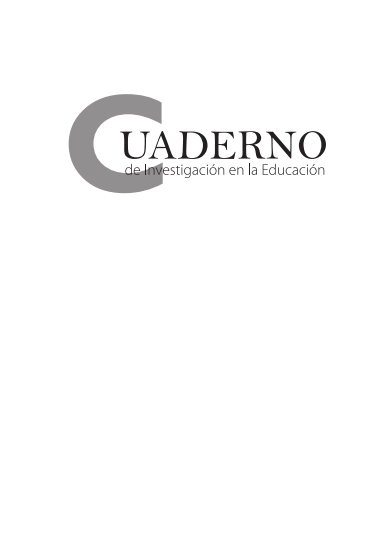Abstract
This article presents an initiative of the Spanish Program of the Department of Education of Puerto Rico to implement Proyecto LEER during two school years as an innovative project in 76 schools. The aim of this initiative is to help students from first to third grade with great lag in reading. Through the Project-based learning strategy high school and middle school students help as tutors to solve one of the most difficult situations found in elementary school. As a result, apprentice children improved reading fluency and comprehension. They were also motivated to receive help from another student. On the other hand, tutor students developed leadership qualities, improved their self-esteem and interpersonal relationships, and some expressed their desire to be teachers.
How to cite:
Portalatín-Rivera, N. (2014). Proyecto LEER: Una iniciativa para fomentar el aprendizaje de la lectura. Cuaderno de Investigación en la Educación, 29, 11-31. Retrieved from https://revistas.upr.edu/index.php/educacion/article/view/13251
References
Barron, B. & Darling-Hammond, L. (2008). Teaching for Meaningful Learning: A Review of Research on Inquiry-Based and Cooperative Learning (book excerpt). Edutopia, The George Lucas Educational Foundation. Recuperado de http://www.edutopia.org/pdfs/edutopia-teaching-for-meaningful-learning.pdf
Departamento de Educación de Puerto Rico. (2007). Estándares de Contenido y Expectativas de Grado Programa de Español. San Juan: Autor.
Fuchs, D., Fuchs, L. & Burish, P. (2005, mayo). Peer-assisted learning strategies: Promoting word recognition, fluency, and reading comprehension in young children. The Journal of Special Education, 39, 34-44.
Galeana de la O., L. (2006). Aprendizaje basado en proyectos. Revista del Centro Universitario de Producción de Medios Didácticos. Recuperado de http://ceupromed.ucol.mx/revista/PdfArt/1/27.pdf
Goodman, K. (2002). El proceso de lectura: consideraciones a través de las lenguas y del desarrollo. Nuevas perspectivas sobre los procesos de lectura y escritura. México, D.F.: Siglo Veintiuno editores.
Jensen, E. (2009). Teaching with poverty in mind: What being poor does to kid‘s brains and what schools can do about it. Alexandria, Virginia: ASCD.
López Carrasquillo, M. (2002). La magia de leer. San Juan, PR: Grupo Editorial Norma.
López Carrasquillo, M. (2010). Marginados en un mundo de letras: 14 principios para enseñar con amor, compasión y alegría. San Juan, PR: Divinas Letras.
Mata, J. (2008). Cómo mirar la luna: Confesiones a una maestra sobre la formación del lector. Barcelona, España: Graó.
Rosenblatt, L. M. (2002). La literatura como exploración. México: Fondo de Cultura Económica.
Solé, I. (2009). Estrategias de lectura. Barcelona, España: Graó.
Trilling, B. & Fadel, C. (2009). 21st century skills: Learning for life in our times. San Francisco, CA: Jossey-Bass.
The contents published in the Puerto Rico Journal of Education is freely distributed under open access practices, in accordance with the Creative Commons license, Attribution-NonCommercial 4.0 International (CC BY-NC 4.0). Through these principles, the journal and its authors allow readers to access, reproduce and share articles in full text. Users should give credit to authors in a reasonable way without suggesting they have their support. Under no circumstances, readers may make use of the contents for commercial purposes. The authors retain copyright on their works.

